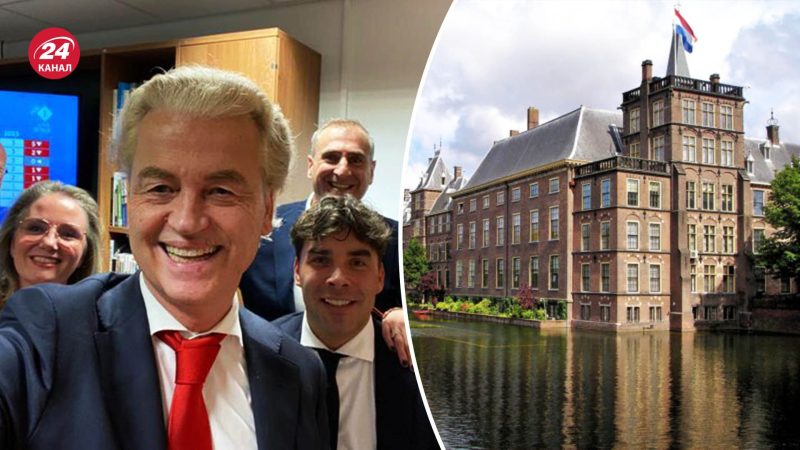Geert Wilders is the winner of the parliamentary elections in the Netherlands / Collage 24 Channel In the parliamentary elections, the Netherlands decided to “reboot” its government, doubling the result of the far-right Freedom Party. Its head has a positive attitude towards Viktor Orban and calls for an end to arms supplies to Ukraine. However, the fundamental basis of Geert Wilders' position is the refusal to enlarge the EU, because admitting new members would cost too much money. Yulia Soldatyuk-Westerveld, an expert at the Netherlands Institute of International Relations Clingendael, told Channel 24 about this. Ukraine should not count on strong support from the Freedom Party, in particular on the issue of European integration. However, our state can significantly increase its chances of joining the EU by demonstrating compliance with the rule of law and increasing the transparency of its decision-making. These criteria are extremely important for the Netherlands in assessing Ukraine's readiness to join. Observers call the victory of the far-right party in the Netherlands a “political earthquake”, because among its figures there are also those who support Nexit – the country’s exit from the European Union. However, the slogans about “border control” voiced by Wilders on the eve of the elections could also be ordinary election rhetoric to attract voters. “The situation largely depends on elections in other EU countries. And if the number of countries that have leaders from this (radical right – Channel 24) political spectrum increases, this could complicate the implementation of internal reforms of the European Union, which are important for continued expansion EU,” admitted the international relations expert. Yulia Soldatyuk-Westerveld about the election results in the Netherlands: watch the video After processing 98% of the ballots, the results of the leading parties look like this: All other parties will collectively have 44 seats in parliament (29% of the votes), which has 150 deputies. Mark Rutte's People's Party, committed to Ukraine, has already announced that it will not join the new government because voters are unhappy with it. At the same time, observers also believe that it will not be easy for the victorious Freedom Party to form a new coalition.
What challenges await the EU and Ukraine
Details of elections in the Netherlands
European Union reform
Political earthquake: how the arrival of a new government in the Netherlands will affect Ukraine’s European integration
42

